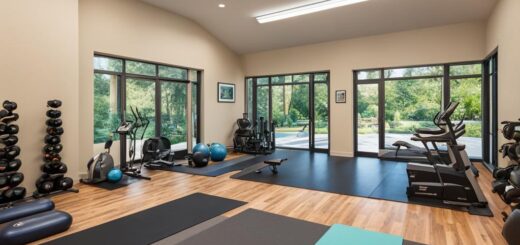Navigating Your Sober Living Environment Journey
Recovery is a journey that requires a supportive environment to succeed. For individuals in recovery, a sober living environment can be a crucial component in enhancing their path to lasting sobriety. Sober living homes and communities provide a structured, accountable, and safe environment for individuals as they transition from treatment facilities to normal life.
In this section, we will explore the importance of a supportive sober living environment in enhancing your recovery. We will discuss the various options available, including sober living homes and communities.
Key Takeaways
- Sober living environments are supportive environments that enhance recovery.
- Sober living homes and communities provide safe and structured environments for individuals in recovery.
- Transitional housing options may also be available for individuals transitioning from treatment facilities.
- Choosing a sober living environment can contribute to personal growth and accountability.
- Open communication and embracing support can help individuals overcome challenges in sober living environments.
Understanding Transitional Housing and Sober Living Homes
As someone in recovery, transitioning from a treatment facility to a sober living environment can be a critical step in your journey towards long-term sobriety. Transitional housing and sober living homes are structured environments that provide the necessary support to individuals as they begin to rebuild their lives.
Transitional housing offers a bridge between the intensive supervision of residential treatment and the autonomy of a sober living home. These programs typically provide a safe and structured living situation that offers therapeutic and supportive services as you make the transition back to independent living. On the other hand, sober living homes provide a more independent and less structured environment for individuals who have completed a treatment program but require ongoing support and accountability.
Both transitional housing and sober living homes provide an opportunity for individuals to establish new healthy habits, build supportive relationships with other individuals in recovery and receive guidance and support from experienced professionals. By surrounding yourself with a community of others who understand the challenges of the recovery journey, you can help mitigate the risk of relapse and achieve lasting sobriety.
The Role of Sober Living Communities in Recovery
A sober living community plays a crucial role in fostering lasting sobriety. Living in a community with individuals who share the same commitment to recovery can provide a supportive and motivating environment.
Recovery residences, such as sober living homes, offer a structured and safe living space where individuals can continue their journey towards sobriety. These facilities provide a range of services and resources that can assist residents with their recovery, including support groups, counseling, and educational programs.
Sober living facilities also offer the opportunity for residents to develop new coping mechanisms and life skills, such as time management and goal-setting. These skills can be essential for maintaining long-term sobriety and building a meaningful, fulfilling life in recovery.
By living in a sober environment, individuals also benefit from the sense of community and accountability that comes with it. Being part of a supportive community can provide individuals with the emotional support they need to overcome the challenges of recovery.

Overall, sober living communities can be the key to successful recovery. They offer a supportive, structured environment that can foster lasting sobriety and help individuals build a fulfilling life in recovery.
Creating a Supportive Environment for Personal Growth
Recovering from addiction requires a safe and supportive environment that fosters personal growth. For men in recovery, this is especially important. At our sober living facility, we understand the unique challenges that men face in their journey to lasting sobriety, and we have created a supportive living environment that addresses those challenges head-on.
One of the key elements of a supportive sober living environment is accountability. By establishing clear rules and guidelines, our residents can feel secure in their daily routine and develop healthy habits that support their recovery. Another crucial element is community. By living with other men who share their commitment to sobriety, our residents can form positive relationships and build a strong support network that lasts well beyond their time in our program.
In addition to these foundational elements, we offer a range of supportive services to help men in recovery thrive. From individual counseling to group therapy, we provide the resources and guidance our residents need to overcome obstacles and achieve lasting success. Our approach to sober living for men is designed to be flexible and adaptive, so that each resident can find their own path to personal growth and fulfillment.
At our sober living community, we believe that every man has the potential to achieve lasting sobriety and personal growth. By creating a supportive living environment that meets their unique needs, we help our residents take the first steps on the path to a brighter future.
Sober Living Programs and Services
Sober living programs and services are designed to provide a structured environment for individuals seeking to maintain their sobriety. These programs offer a range of services, including counseling and support groups, to help individuals overcome addiction and live healthy, productive lives.
One of the key components of sober living programs is accountability. Participants are expected to adhere to strict rules and guidelines, which can help to build healthy habits and reinforce positive behaviors. Additionally, many programs offer peer support, giving individuals the opportunity to connect with others who are also on the path to recovery.
Other services provided by sober living programs may include job training and placement assistance, educational opportunities, and transportation services. These resources are designed to help individuals rebuild their lives after addiction and achieve long-term success.
If you or someone you know is struggling with addiction, consider exploring the various sober living programs and services available in your area. With the right support and resources, recovery is possible.
Benefits of a Sober Living Environment
Living in a sober environment can offer numerous benefits for individuals in recovery. One of the primary advantages is the presence of a supportive community that fosters accountability and provides a sense of belonging. In a sober living environment, individuals can build healthy habits, such as regular exercise, proper nutrition, and stress-management techniques, which are essential for long-term recovery.
Recovery residences also offer a safe and structured environment that minimizes temptations and triggers that can lead to relapse. By establishing healthy routines and addressing underlying issues, individuals in recovery can develop new coping strategies and life skills that improve their quality of life.
“Living in a sober living home played a significant role in my recovery journey. Being surrounded by individuals who shared my struggles and goals provided me with a sense of community and support that I never had before. Together, we learned healthy habits and held each other accountable, which enabled us to grow and thrive in sobriety.”
Overcoming Challenges in a Sober Living Environment
Transitioning to a sober living environment can be challenging, and it’s important to acknowledge that recovery is a journey with both ups and downs. Fortunately, there are several strategies you can use to navigate the obstacles and maintain your sobriety.
Strategy 1: Embrace Open Communication
One of the most essential strategies for overcoming challenges in a sober living environment is open communication. It’s important to speak openly and honestly with the other residents and staff about your struggles and concerns. This can help you to identify triggers and develop coping mechanisms.
Strategy 2: Take Advantage of Supportive Resources
In a sober living home or community, several resources are available to provide you with support. Take advantage of these resources such as group therapy, individual counseling, and 12-step meetings. You can build a strong network of peers who are committed to sobriety.
Strategy 3: Practice Self-Care
Self-care is a crucial element of maintaining sobriety. Take time for yourself and practice activities that promote positive self-image such as yoga, meditation, and exercise. Adequate rest, nutrition, and hydration are also essential.
Strategy 4: Don’t Give Up
Recovery is not easy, and there may be times when you feel like giving up. Don’t be discouraged by setbacks but instead view them as opportunities to learn and grow. Surround yourself with positivity and people who support your recovery journey.
By implementing these strategies, you can overcome the challenges associated with a sober living environment and achieve lasting sobriety. Remember, recovery is a journey, and every step counts towards a healthier, happier life.

Conclusion
In conclusion, a supportive sober living environment plays a crucial role in enhancing one’s recovery journey. Whether it is transitional housing or sober living programs, having a structured environment can provide the necessary support and accountability needed to achieve lasting sobriety.
Transitional housing and sober living homes provide a stepping stone for individuals transitioning from a treatment facility to independent living. These environments offer a structured framework for recovery and enable individuals to build healthy habits and routines.
Sober living programs provide additional support and resources for individuals committed to their recovery journey. These programs often incorporate counseling, educational workshops, and community-building exercises, which can further enhance the recovery process.
Ultimately, a supportive sober living environment can facilitate personal growth, build healthy habits, and provide a sense of community. While challenges may arise in these environments, embracing the support available and maintaining open communication can help individuals overcome these obstacles.
If you or a loved one is seeking a sober living environment, consider exploring the various options available, including transitional housing and sober living programs. Remember, achieving lasting sobriety is a journey, but with the right support and resources, it is possible.



Recent Comments